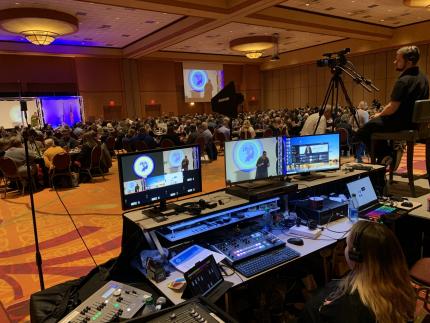Justice and Behavioral Health Conference Attracts Practitioners from Across State
Supporters of the Nebraska Judicial System providing behavioral health services and legal support gathered to hear from national experts and area speakers on topics ranging from problem-solving courts to trauma services to adolescent behavior.
“In the Nebraska Justice and Behavioral Health systems, we share a collective goal of promoting constructive change through rehabilitation, collaboration, and partnership to enhance safe communities,” noted Supreme Court Justice Jeffrey Funke.
Headline speaker, Dr. Douglas Marlowe, senior scientific consultant for the National Association of Drug Court Professionals, opened the main session by reminding the 950 participants that the essence of the drug court model is to treat sick behavior, appropriately sanction bad behavior, and reward good behavior – and know the difference.
Marlow was followed by two days of programming with three additional keynote speakers and forty breakout sessions. Participants selected topics based on their role within the system, including a select session directed toward problem-solving/drug court teams and judges. The conference highlights the shared concerns of problem-solving courts and behavioral health. Nationally and in Nebraska, problem-solving courts continue to examine innovative ways to provide targeted evidence-based services to justice-involved individuals and their families.
Problem-Solving Courts have uniquely infused Judges and other community partners in a collaborative nature as part of the justice system process.
According to Probation Administrator Deb Minardi, the conference attracted attendees from “community corrections, problem-solving courts, Department of Health and Human Services, the provider community, county attorneys, defense attorneys,” in addition to those from law enforcement and other state agencies.
The conference featured presentations with unique insights, evidence-informed strategies; timely information on new and emerging issues; and relevant content for improving outcomes for court-involved individuals.
Funke remarked, “Research has shown that mental health and substance use disorders affect people from all walks of life, with or without justice involvement. With the services and support of behavioral health providers, many people recover. Nebraska’s justice system and our network of community-based providers share a critical role in ensuring that every individual we serve receives the support, skills, and opportunity for recovery to live productively with dignity and respect.”

